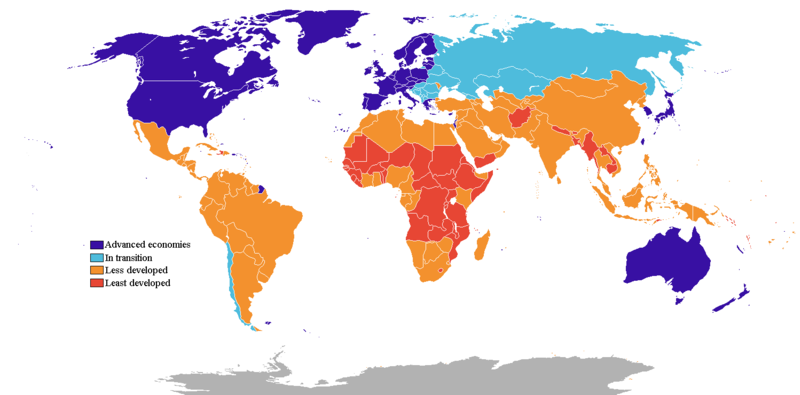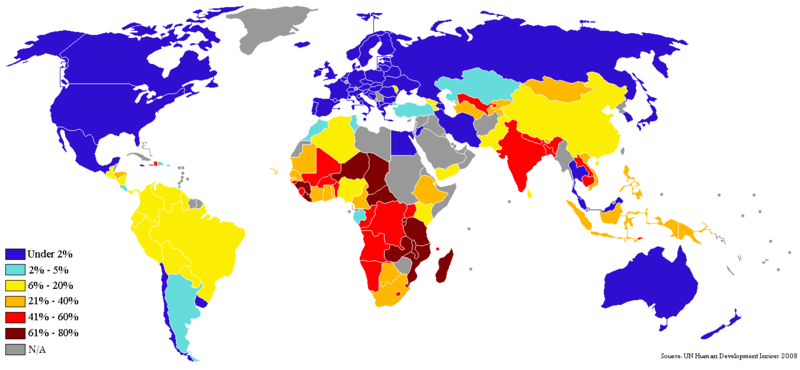As I see it, the primary reason our human civilization has been able to flourish to it's heights today is because of the use of technology to multiply labor. The sole reason we are able to sustain a population in the billions is because of this multiplication effect.
At the dawn of civilization humans began to develop agriculture. The planting of crops and the keeping of animals allowed humans to support a much larger population than hunter-gathering tribes. During this time animals were used along with simple technology like hand tools to multiply human labor and allow an abundance of food to be produced.
This abundance produced from the slave labor of animals (and humans) allowed other humans to specialize in trades other than food production. Over time, many trades and specializations developed over the numerous different societies that developed. As I see it, this surplus productivity can be tied directly to the further development of these cultures, arts and sciences. People who did not have as productive methods of multiplying their labor had to work much harder just to survive, and as such would not have had the time or energy to develop a complex civilization.
Once the industrial revolution came about we began to replace the slave labor of animals and the minor multiplication effect of hand tools with machines. This mechanization allowed for vastly increased productivity and the expansion of our population into the billions. With this great multiplication of labor also came greater problems. Just as mechanization increased productivity in beneficial things like farming, it also increased the lethality of weapons by multiplying the effects of their labor too.
Despite the problems our civilization has managed to forge ahead, continuing to produce greater abundance with greater multiplication of labor. This is a trend that should continue, and if it does it will one day produce a post-scarcity world.
I don't see technology as bad or evil. It's just a way to multiply labor, and if used skillfully it can produce great benefits.
Now, I'm sure by this point there will be some of you reading this that will be raging about resources and the environment. I'd first like to address resources. As our technological sophistication expands, we will discover and create new resources, as well as finding more efficient ways to utilize and recycle old resources. This has been proven itself true time and time again, yet many people still bemoan how we will run out of this or that. It's true that resources are finite, but human capacity to innovate is infinite! In my view, that more than compensates for the finite nature of available resources.
The second is the environment. As I have stated many times, I am in favor of environmental protections and I do consider myself an environmentalist. I fully understand that the multiplication of labor to the scale it is today has resulted in many environmental problems. However, I've also seen successes in cleaning up the environmental damage we have caused. If our multiplication of labor continues to increase, along with technological advancements, logic follows that it should require much less labor in the future to clean up environmental problems. I'm not proposing that we wait forever to take action on environmental issues, but I would like to see caution urged on issues that are uncertain or the effects of which are not fully known or understood. As time passes and our scientific knowledge base expands along with out waste treatment and pollution control technology improving, taking skillful action to help clean up the environment should get much easier. That's all I'm trying to say.
OK, now back to the topic.
As Buddhists, I feel we have the chance to use technology to multiply our efforts at attaining enlightenment, as well as helping to lessen the suffering of other beings. In my business I use computers to multiply my labor. I automate as much as possible and try to get the maximum benefit from my labor. I would like to apply that same principal to Buddhism. I haven't seen very much being done yet in that respect, so it looks like there's a lot of room for innovation.
I would like to help build a future world with a post-scarcity of enlightenment. We have vast production capacity which has resulted in huge surpluses of many material goods, so much so that we are near post-scarcity for material goods. However, producing post-scarcity of enlightenment would likely benefit us more than a post-scarcity of mere material goods. I have some specific ideas on how to make this happen, and in truth, I have been quietly pondering them for some time. However, I have very rarely spoken directly about these things, and I'm hoping to get feedback from fellow Buddhists on the subject.
Basically, without going into too many details just yet, I'm wondering how you all feel about using technology to multiply the productivity of your practice?


